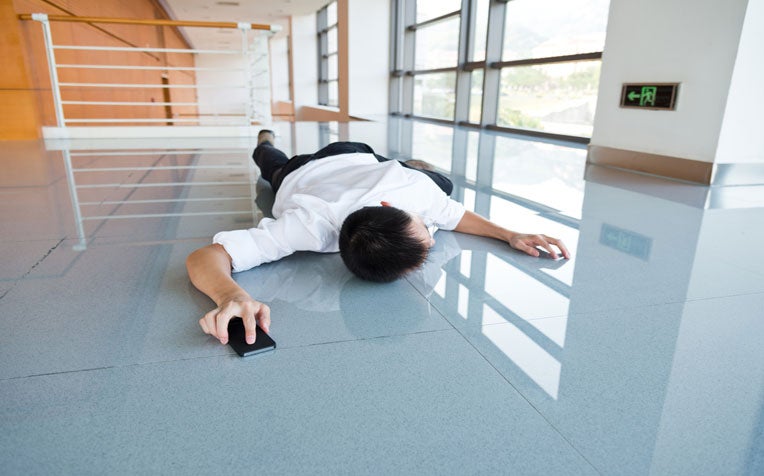HealthXchange will NEVER ask you to transfer money over a call. If in doubt, call the 24/7 ScamShield helpline at 1799, or visit the ScamShield website at www.scamshield.gov.sg.
Syncope: How Does It Happen?

Syncope refers to losing consciousness momentarily.
What should I do if I suddenly feel faint?
- Try to call for help immediately. If there’s no one around, call 995 for an ambulance.
- As the most common cause of fainting is vasovagal, the best thing to do is to sit, squat or lie down.
- If you have diabetes and are on oral diabetic medication, and have missed or delayed a meal, quickly suck on a sweet as you may have low blood sugar.
- See a doctor as soon as possible.
-
How does fainting (syncope) come about?
Fainting generally refers to a momentary loss of consciousness. This generally occurs when the brain doesn’t receive enough oxygen, blood or sugar. In the case of fits, fainting is due to a surge of electrical impulses originating from the brain.
The typical fainting spell is the result of the body overreacting to certain triggers, such as the sight of blood or extreme emotional distress. This is called a “vasovagal syncope”.
During such an episode, the vagal nerve (from the brain) causes the heart rate and blood pressure to drop, reducing blood flow to the brain. Since blood carries oxygen to the brain, this deprives the brain of oxygen, leading to a “black-out”.
When someone faints, the body typically goes from a standing to a lying position. This helps the blood to flow to the brain since the blood doesn’t need to be pumped against gravity. The person will often regain consciousness spontaneously after a few minutes.
How serious is fainting?
Most cases of fainting are benign, but this should never be assumed. Syncope could mean a serious – even potentially fatal – condition such as irregular heartbeats, epilepsy, very low blood sugar (hypoglycaemia), sudden blood loss or cardiac arrest. If you lose consciousness, you should be properly assessed by a medical practitioner.
Ref: O17
Contributed by
Public Events
Get the Health Buddy App
© 2025 SingHealth Group. All Rights Reserved.














 Get it on Google Play
Get it on Google Play